“His authority on earth allows us to dare to go to all the nations. His authority in heaven gives us our only hope of success. And His presence with us leaves us no other choice.” – John Stott
Back in the 70’s when Billy Graham started to travel internationally, he would come across many evangelicals but they were all disconnected from each other. Traveling, ministering and spreading the Gospel alone. This was a concern for Dr. Graham who knew that the spirit of humility, friendship, prayer and partnership will bring hope and strengthen one another on mission.
The Lausanne Movement was born, chaired by John Stott they organised the very first international congress on world evangelisation back in 1974. An astounding 2,400 participants from 150 nations gathered in Lausanne, Switzerland for the first event. AE’s founder, Michael Cassidy was part of the initial planning of the very first congress. Later he served on the advisory council and was the chair of the Mission Committee for the 3rd Lausanne Congress held in Cape Town in 2010. Cassidy also became an honorary chair of the Movement in 2012.
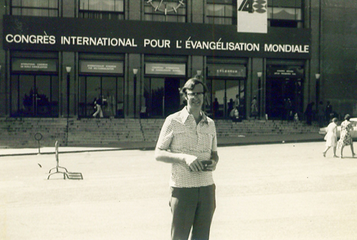
Michael Cassidy at the Lausanne Congress 1974
The Lausanne Covenant emerged from this first congress in 1974. This document defines what it means to be an evangelical. It is also a call to Christians to unite and spread the Gospel throughout the world. Many mission organisations, including African Enterprise, use The Lausanne Covenant as their statement of faith.
You can read The Covenant here.
“Throughout their lives, Billy Graham and John Stott gave peerless leadership to evangelicals around the world. We should not look for successors. Their joint work in establishing a movement that bound evangelistic passion with theological reflection, and orthodoxy with orthopraxy, has proven a watershed for evangelicals. To this day, world congresses, global gatherings, and issue-specific forums and consultations have continued to be convened in what Billy Graham called ‘the spirit of Lausanne’—a spirit of humility, friendship, prayer, study, partnership, and hope—the very spirit mirrored in his friendship with John Stott.” – Billy Graham and John Stott, A friendship of evangelistic passion and theological reflection, The Lausanne Movement
More on the AE team and their involvement in The Lausanne Movement:
Michael Cassidy
Stephen Mbogo
Emmanuel Kwizera
Reminiscing on Billy Graham’s landmark crusade in apartheid South Africa
“The South African Congress on Mission and Evangelism in Durban in March 1973 was, I believe, a turning point both in our own ministry and for South Africa.” – Michael Cassidy
When AE invited Dr. Billy Graham as a guest speaker for the Mission Congress, there was a frenzy of interest from the South African public. The Congress was a landmark event in segregated South Africa, as Christian leaders of all races and denominations united in pursuit of true Gospel transformation.
On Saturday the 17th of March 1973, a large evangelistic rally was held at Durban’s Kings Park rugby stadium. A record audience of between 45,000 and 50,000 gathered that day. In a landmark moment for South Africa, a racially diverse, yet peaceful crowd had gathered publicly.
In his autobiography Footprints in the African Sand – My life & times*, Michael Cassidy reflects, “Here was South Africa as it should really be – a glorious kaleidoscope of racial beauty and diversity. In fact, never did the segregationist way seem more unnatural and grotesque than in those moments.” He goes on to describe the ripple effects that the rally had on the nation, “Newspaper banners screamed in hyperbole: ‘Apartheid Doomed’. Beyond that, multitudes in that stadium and around the country via the media caught a vision of what South Africa could become.”
Dr. Graham gave a simple Gospel message that day, followed by an invitation to accept Christ. More than 4,000 people surged forward. Counsellors struggled to provide follow-up booklets to all the new believers, many of whom were unable to get near the platform area.
Michael Cassidy describes the beautiful scene that followed:
“Blacks counselled Whites. Whites counselled Indians. Coloureds counselled Blacks. And so it went, for an hour or more, as the stadium slowly began to empty. This was South Africa. The Beloved Country. The country to weep for. And pray for. And work for. Here it was in an identity crisis, and trying to find itself. And here was the Spirit of Jesus on the job, proclaiming good news to the poor, release to the captives, recovery of sight to the blind, and liberty to those who are oppressed… Of course, history would prove that we still had a long way to go. But a start had been made.”
In reflecting on that day at Kings Park, Prince Mntambo, an African pastor, said,
“Black alone looks dull. White or yellow alone look pale and empty – but black, brown, yellow and white look like beautiful flowers planted by God. That was the beauty of Kings Park with Dr. Billy.”
*Footprints in the African Sand – My life and times (by Michael Cassidy) is available for purchase from AE Australia. Contact:ae@aeint.org
Please pray for our upcoming missions across Africa and for the Gospel to reach those that have never heard it before.
Stephen Lungu clutched his bag of petrol bombs tightly as he and his fellow gang members approached the large gathering inside the tent. It was just before 7 PM and a huge crowd had gathered to hear the Gospel in Machipisa township on the outskirts of Harare, capital of Zimbabwe. Stephen was the leader of a detachment of a dozen teenage thugs from the Black Shadows, a gang intent on stirring up trouble and rebellion against the white government of pre-independence Zimbabwe. And their intent on this particular evening in 1962 was to blow up the evangelistic meeting. “I want everyone inside that tent to die,” Stephen admonished his gang friends. “At 7 PM I will whistle and everybody throw their stones and petrol bombs into the tent entrance” (74).
With a few minutes to spare before the stroke of 7, however, Stephen stepped into the tent to listen. Now in his late teens, he was an angry and lonely young man, abandoned at the age of seven by his mother and left to fend for himself on the streets of Harare. His father had long since married another woman and moved to Malawi and he had lost contact with his younger brother and sister. He was illiterate, having had only four months of formal education and spending his younger years sleeping under a bridge, retrieving balls at golf and tennis clubs for a few pennies of income and scavenging food out of trash cans in the affluent white folks’ neighborhoods.
His anger and hatred had lately been fanned and given focus by his involvement in the Nationalist Youth League, which promoted a Marxist understanding of African history and advocated the violent overthrow of the minority white government of Rhodesia (as Zimbabwe was called then). Stephen and the Black Shadows aimed to contribute to their country’s liberation from white rule by stealing from whites and seeking to sow general chaos through thuggery and instigating riots.
While Stephen’s fellow gang members grew restless as 7 PM came and went, he continued to listen, first to a beautiful young girl from Soweto in South Africa telling of how Jesus had “transformed everything. There was a strange uncanny authority and resonance with which she spoke of forgiveness and a new start in life,” said Stephen, “and I suddenly felt very dirty and shabby” (75).
Then a Zambian preacher got up and spoke from Romans 6:23 about the wages of sin being death. These words rang in Stephen’s head as he reflected on all the hatred he felt towards so many people that had caused him to pursue a life of violence and chaos. When the preacher then quoted “2 Corinthians 8:9 – ‘For you know the grace of our Lord Jesus Christ, that though he was rich, yet for your sakes he became poor, so that you through his poverty might become rich.’ Suddenly I began to understand what Christianity was all about,” said Stephen. “It was for someone like me! I could identify with this Jesus. He had suffered in all the ways that I knew so well. Poverty, oppression, hunger, thirst, loneliness. I had known all of these, and so had he… My wages were death, but Jesus paid the price for me. On the cross he had become a nobody that I could become a somebody” (80-81).
Still clutching his petrol bombs, Stephen stumbled forward to where the preacher was speaking, even though it was still in the middle of his message. Ushers tried to escort him away, but the preacher forbade them, continuing with his sermon.
A few moments later, rocks pelted the tent and petrol bombs went off, causing a stampede out into the surrounding fields. Stephen’s cronies had gone ahead with their violent plan without him. But the preacher remained, with Stephen on his knees in front of him, pouring out through tears of anguish his story of abandonment and heartache, of anger and violence.
Through the providence of God, the preacher himself had come to Christ and found healing after having been abandoned as a baby by his mother, and shared with Stephen Psalm 27:10: “Though my father and my mother forsake me, the Lord will take me up.” After hearing this, Stephen prayed, “God, I have nothing. I am nothing. I can’t read. I can’t write. My parents don’t want me. Take me up, God, take me up. I’m sorry for the bad things I’ve done. Jesus, forgive me, and take me now” (87).
Stephen went back to his usual bridge to sleep under that night, but as an entirely new person. When he awoke and cleaned himself up, his career as a powerful evangelist got underway as he boarded a bus into the city and began preaching to the other passengers about what had happened to him the previous night. He was thrown off the first bus he tried this on, but when he exited the second one, a small crowd of seven people had been touched by his testimony and wanted to give their lives to Christ.
Stephen realised he didn’t quite know what to do, so he knelt down on the sidewalk with them and prayed, “God, I’ve met these good people on the bus just now, and I told them about how I found your Son Jesus last night. They’ve said they would like to meet him too, because I’ve told them how he loves everyone in the whole world. So, here they are.” Tears rolled down the faces of these new converts as they gave themselves to their Savior. More than forty years later, says Stephen, “I was still in touch with three of them – they became ministers of local churches” (99).
Besides telling people about Jesus, Stephen also felt he must turn himself in to the police and confess his crimes. “The love of Jesus arrested me last night,” Stephen told one of the senior policemen. “Last night I 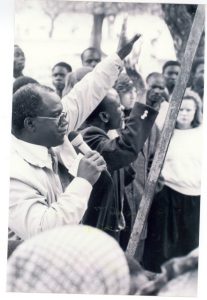 became a Christian, and I realised that what I have been doing is wrong” (100). The incredulous policeman listened to Stephen’s story and tried to plumb him for information on his gang. Stephen confessed to everything he had done, but sought not to betray his old friends. Finally, the policeman said, “Well, Stephen, if your Jesus has forgiven you, we forgive you also. There is nothing to be gained from keeping you here. You are free to go.” Another policeman held out his hand and said, “Here is some money – go and buy yourself a Bible” (103).
became a Christian, and I realised that what I have been doing is wrong” (100). The incredulous policeman listened to Stephen’s story and tried to plumb him for information on his gang. Stephen confessed to everything he had done, but sought not to betray his old friends. Finally, the policeman said, “Well, Stephen, if your Jesus has forgiven you, we forgive you also. There is nothing to be gained from keeping you here. You are free to go.” Another policeman held out his hand and said, “Here is some money – go and buy yourself a Bible” (103).
Though he did not yet know how to read, Stephen went out and proudly bought himself a nice hardcover Bible, which he treasured. With it under his arm, he went out every day on the bus to preach in the central market, telling everyone he possibly could about Jesus. His old friends from the Black Shadows gang found out about this and would come and heckle him, calling him “Bishop” or “Vicar” and kneeling down and pretending to cry in the street. One of them even pulled a knife on him. Stephen also sought out a church to attend, but found that the parishioners there weren’t very enthusiastic about his preaching every day out in the marketplace – it wasn’t “respectable” – and his bringing mostly shabby new converts into the congregation.
Word had got back, though, to the Dorothea Mission, the South Africa-based Christian organisation in whose tent crusade Stephen had just come to Christ. One day as he was preaching, a man named Hannes Joubert, a Dorothea missionary from South Africa who had just moved to Zimbabwe, approached Stephen with an offer to join a Bible school which Joubert was starting in Harare. Stephen was the first student and was amazed at Joubert’s faith in starting this new venture. For he “had no money. He had no building. He had no teachers. He had few books. He had only one student – an uncivilized twenty-year-old straight off the streets whose knowledge of Christianity came from Marxist-driven ideology, one evangelistic tent service attended with the aim of petrol bombing it, and a few follow-up meetings afterwards” (124).
Furthermore, Stephen spoke little English, could not read or write and hardly knew how to eat with a knife and fork or to take a bath without spilling most of the water out of the tub. Stephen took up residence in Joubert’s garage, as it was against the law at that time in Zimbabwe for a black person to stay in a white person’s home, but this new home was an enormous improvement over his former one under the bridge.
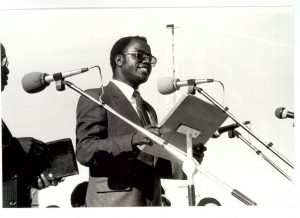 Stephen spent a number of years studying – learning to read and write, learning English, learning about the Bible and even learning about eating properly with a knife and fork! By the mid-1960s the Dorothea Mission welcomed him aboard as one of their missionaries and he began to go out preaching in the ensuing years on missions throughout Zimbabwe and in Mozambique, Malawi, Zambia, Botswana and South Africa. This was a time of major social and political upheaval in most African countries, as they gained independence from colonial powers or, in the case of Zimbabwe, continued to resist the oppression of the ruling white government.
Stephen spent a number of years studying – learning to read and write, learning English, learning about the Bible and even learning about eating properly with a knife and fork! By the mid-1960s the Dorothea Mission welcomed him aboard as one of their missionaries and he began to go out preaching in the ensuing years on missions throughout Zimbabwe and in Mozambique, Malawi, Zambia, Botswana and South Africa. This was a time of major social and political upheaval in most African countries, as they gained independence from colonial powers or, in the case of Zimbabwe, continued to resist the oppression of the ruling white government.
Reprieve for Zimbabwe did not come, however, until 1980 and for South Africa not until 1994. But it meant that Stephen and his colleagues were preaching the message of what many Africans considered “white man’s religion”. Many evangelistic rallies would invite violent protests and find the Dorothea missioners fleeing in a hail of rocks and bricks, or being beaten by a mob. Stephen and others were once kidnapped at 1 AM by members of the Malawi Congress Party Youth League, who were upset that a Dorothea mission in Blantyre had attracted more people than their political rally. Intense prayer by many others secured their release.
New impetus came into the ministry of the Dorothea Mission with the arrival from England in the mid-1960s of Patrick Johnstone, who later became well-known for his prayer guide, Operation World. Stephen and the others learned to build their lives around prayer, study and outreach. Thus mornings “were devoted to prayer and preparation, while each afternoon we began spending three hours out and about, visiting Christians to prepare for meetings, or visiting house to house. We would encourage converts in their new faith. By late afternoon…we would hold a simple open-air meeting to catch people’s attention on their way home from work. By seven we were down at the tent, preparing for the evening’s rally” (154). Johnstone sought to build up Stephen and other young Africans to take over the leadership of the evangelistic outreaches, something Stephen at first found incredibly daunting and difficult to contemplate taking on.
But he persevered and soon was leading missions all over southern Africa, besides getting married to Rachel, a Malawian, in 1969, with whom he has had five children. The most astonishing experience Stephen ever had in a mission came in 1975, back in Harare again, when he was exhausted after a whole day of preaching almost constantly.
He had just finished his last preaching assignment for the evening and made a halfhearted appeal for anyone wanting to come forward. “I unhooked the mike and was turning away from the platform, longing for a cool drink, when someone clutched at my trouser leg. I looked down. A little woman standing in front of the platform, looking up at me. I crouched down to have a better look at her. She was a bit of a mess. She was thin, looked ill and stank of alcohol. She was drunk. ‘I would like to pray with you,’ she said abruptly, staring at me in the most peculiar way” (191). Being exhausted, Stephen tried to fob her off to one of the female counselors, but finally prayed with her. But she kept hanging on to him, finally saying, “‘Do you know you are my son? … Back in Highfield,’ she said. ‘You and your brother John and sister Malesi. From what you said tonight, I know I was – am – your mother.’ Her words sunk in at last, and I felt the shock of it hit me like a physical force. The years peeled away and I relived the terror of that dreadful day. This small, shrivelled-up, ill lady was the glossy, round young woman that had abandoned my sister, my brother and me to probable death twenty years ago” (192-193).
Stephen struggled mightily to forgive his mother, but with the Lord’s help was finally able to do so. Amazingly, she grew in her Christian faith and enrolled in the same Bible school as Stephen had gone through and then joined the Dorothea Mission and became an evangelist herself! Stephen then tracked down his father in Malawi in 1986 and shortly thereafter led him to the Lord. He lived with Stephen and Rachel for some years and died at the ripe old age of 104.
Stephen was invited in 1978 to start up a new Dorothea team in Malawi and then in 1982 joined African Enterprise (AE), an international ministry focused on evangelising the major cities of Africa with teams in ten countries across the continent. Just at this time, he was given a scripture that portended his future.
Isaiah 55 reads: “I will send you to the nations that you do not know.”
New horizons opened up for this former street kid, as he soon found himself preaching not only all around the African continent, including a crowd of 250,000 in Addis Ababa, Ethiopia, in 1994, but all over the world – in North America, the UK, Ireland, Europe and Australasia. He even spent six months living and preaching all over New Zealand in 2004 in an effort to build up a solid base of prayer and financial support for AE there.
“Because I look at myself as a miracle of God’s grace,” Stephen says, “so I believe that the power of Jesus Christ to save sinners still exists. If he can change me, he can change anyone… Winning souls for Christ. It’s my calling. It’s my passion. It’s me”.
Stephen Lungu was the Team Leader for African Enterprise Malawi from 1982 – 2006. He then became CEO of African Enterprise International, taking over from the organisation’s founder, Michael Cassidy. Stephen Lungu was succeeded by Stephen Mbogo as CEO of AEI in 2012.
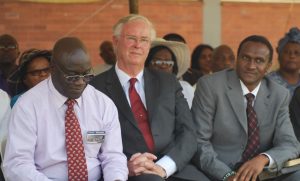
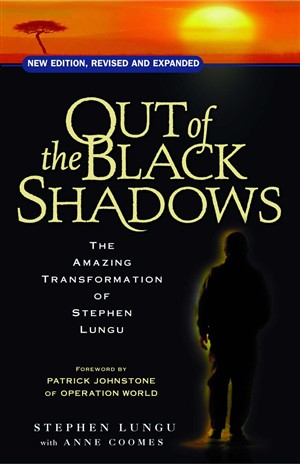
Michael Cassidy shares his thoughts
What makes Africa relevant to those of us who live in Australia? We recently chatted to Michael Cassidy about the obvious question, “Why Africa?”, and here is what he had to say:
‘AE is called to serve Africa. Although evangelism is needed throughout the world, the calling of AE is a specific one, namely “To evangelise the cities of Africa through word and deed in partnership with the Church.” So it is for this cause that we call people to invest.
Sub-Saharan Africa is immensely responsive to the Gospel, making evangelism in Africa wonderfully worthwhile. A vast percentage of Africa’s population are ready to receive the seed of the Gospel, and in our missions, we see thousands upon thousands of people responding – unlike most other parts of the world. 20% of the world’s youth live in Africa, and Africa’s young people are particularly receptive to the Good News of Christ.
Africa is a continent of the future. While other countries may celebrate their history, Africa is pulsating with new life and constantly looking to new horizons.
What excites me about the African Church, is that it is very mission-minded. Africa is now sending missionaries to evangelise and plant churches in other parts of the world. Some of the biggest and most vital churches in cities like London or Brussels are African, and their influence on the spiritual life of those cities is considerable. So investing in the African Church is also investing in a new and marvellous mission movement. Incidentally, when I have travelled together with African colleagues on various ministry trips, I have noticed an increased level of interest and openness to the African voice, as opposed to that of a white Anglo-Saxon.
The old Christendom of the Northern hemisphere may have come and gone. However, a new Christendom, a culture where presuppositions are Christian, is being born in the Southern hemisphere, in Africa and Latin America. To pray and give towards the Lord’s work in Africa is a worthy cause. It is helping to shape and build a new Christendom which may well re-evangelise the old one.
I believe that the hour of the African Church has come.’
Listen to Michael Cassidy’s Christmas Message here.
20 October 2020
Beloved Praying Friends and Family in many places,
I am positively conscience-stricken that it is so many moons since I last wrote to you. But I am afraid 2020 for lots of reasons, not least a world-wide pandemic, has been a topsy-turvy sort of year and for me personally has included many challenges of different sorts. In consequence my normal writing schedules have been pretty much turned on their head. Even so, I should have come back to you all long before now. So sorry!
Perhaps I should first testify that through everything this year the Lord has been really wonderful and demonstrated His faithfulness so faithfully. Indeed, it remains on my writing agenda to do a little book called Great is Thy Faithfulness, where I want to testify, Lord willing, to some of the major arenas of life where I have marvellously experienced the faithfulness of God. One student at Rhodes University said to me: “Oh, Uncle Mike, please write that book!” I really look forward to getting into that little volume.
Covid-19
The first part of the year opened up with a number of good preaching and teaching opportunities, one of them being sharing in a Lent course on prayer in my own home congregation, the Church of the Ascension. I still love preaching and am thankful I can still do it with vigour and clarity, and I can still embrace the counsel given by a preacher of yesteryear, which I think I have shared with you, who said: “If God calls you to preach, do not stoop to be a king!”
But of course early in the year Covid-19 struck and turned everything upside down, with special alarm being created for us by the very first cases of Covid in South Africa being right here in our own little village of Hilton. At first we fled out to the Drakensberg to stay with our extra special friends, Paul and Lorna Culwick. They are building a lovely home just below the towering and magnificent Cathkin Peak. That was all so much fun. But after 10 days we felt we really needed to brace ourselves to get back to Hilton to our own home and settle down for the long term course of who knows how many months. In fact, we have not been to anything public anywhere since February, nor have I been anywhere near a shop, except on a couple of occasions to get a take-away pizza, or for some fish and chips and calamari!
However I have to say that the Covid lockdown, while excruciating for some in very limited or crowded space, as in some townships, has nevertheless been very good to me. I have been locked down in the home I love, with the woman I love, doing a thing I love. Namely writing. What more could anyone ask?! And here in Namirembe, especially with Carol’s garden which is a consummate expression of loveliness, I often feel the veil between heaven and earth is slim. In fact just yesterday I said to Carol: “How could heaven be any better than this, except that I can’t yet sit down to afternoon tea with Isaiah or St Paul!”
Deep Waters of the Disciple
Anyway, quite early in the piece, I found coming into my mind persistently, the title of a little book I started back in 1976, believe it or not, when Carol was carrying Marty in the womb and her waters broke at six months due to violent coughing resulting from viral pneumonia. Carol was in hospital three months and there was a time when it looked as if we could lose both mother and child. For both Carol and me it was a season of very deep waters. And I began a little book called Deep Waters of the Disciple where I intended to look at some of the heavy trials which can beset believers. I wrote a preface and two chapters but then became distracted by some other big ministry demands, even though I was staying in Cape Town for those four months rather than returning to Pietermaritzburg. So the book got filed.
But, as I say, quite early in Covid this title came back to me. I went to the files in my study, looked up a file called Suffering, and abracadabra, there was the Deep Waters folder. And it just seemed to be pressed into my spirit that I should pick up the little volume and get going again. I rewrote the preface, edited the first two chapters and then started writing, the first new chapter being The Deep Waters of Covid-19.
The fact is that thousands and thousands have gone through very deep waters during Covid, some with the illness itself, others fearing it, many losing jobs, and others having accentuated during this time problems such as doubt, depression, despair, marital troubles, or bereavement. In fact, the third to last chapter which I have just finished is indeed on Bereavement.
The chapter I am into now is on The Deep Waters of facing Death, because I think this Covid season has heightened for multitudes the awareness of their mortality, and the fragility of life. The last chapter is to be on Heaven – Where there are No Deep Waters! I greatly look forward to writing that.
Work challenges and opportunities
I think I have shared with many of you that we have been working with film producer Frans Cronje (brother of the late Hansie) on a film documentary on the ’94 elections based broadly on my book, A Witness For Ever. In charge of this from the AE side has been the immensely able Charlene Pauw, wife of Theuns Pauw, the SA Team Leader. She and Frans have spearheaded the project, but I have been quite caught up too as we have worked through successive edited versions pressing towards the final product. We are almost there now and hoping to send a penultimate version to President Cyril Ramaposa in the hopes that he will grace us with a brief interview for inclusion in the film.
The production sets forth in historical and educational terms a summary of South African history, with all its fearsome convulsions, and leading up finally to the miracle of ’94. We are also saying that God gave us a phenomenal miracle back then which we dare not throw away, although sometimes our South African political and social behaviour suggests we are trying to do just that. Hence the crisis we are in, a crisis which once again requires the sustained prayers of God’s people and the response of everyone doing their bit. “Do your bit” is a reiterated refrain towards the end of the film.
In my own view this production has great potential, particularly to educate and inspire many young people in our schools where we hope to secure extensive viewing. Please pray for the final processes by which all of this can be brought to full fruition.
MC and Friends Legacy Project
I have also been doing work with Charlene on the MC and Friends Legacy project which involves creating a major digital archive of all my letters, sermons, articles, books, and scrapbooks along with creating links to the material of Great Friends with whom we have walked the journey of ministry these last 50 years. These would include people such as Billy Graham, John Stott, Festo Kivengere, Francis Schaeffer, Chuck Colson and a good many others.
We are working closely with David Larsen, Director of African Media, who is a professional archivist, much sought after around the country. Charlene has also inspanned our Foxfire team to help with sorting endless letters and photographs when they are not involved in ministry. (Incidentally, we have been concerned that Zweli Sokhela, our Foxfire Director, and his wife Norma, went down with Covid. This has further complicated their ministry and assorted outreach endeavours. We covet your prayers for Zweli and Norma’s full recovery). Anyway, the Foxfire ministry is getting back underway again with more and more excellent open-air meetings for young people.
The aim of the Legacy Project is not just to have all this material archived, but to create an online study resource for pastors and students. So it will be a living and active project for the present and the future and not just a historical record of the past.
Personal news
I have been much privileged on the personal ministry front to have been asked by Theuns Pauw to do some short and regular video devotions (about seven minutes) to send out a couple of times a month. I have enjoyed these and am thankful that they have touched numbers of people here and there. If by any chance you would like to receive these, do please let us know.
Then I was very blessed a few weeks ago to celebrate my 84th birthday. I am so very thankful to the Lord for the gift of long life and I have asked Him for many more years not simply for ministry but for enjoying marriage to Carol. I want so much to drink fully of the marriage cup because the Lord has said that in Heaven there will be no marrying or giving in marriage! Our life and time on Planet Earth seems to be the only opportunity to be married, and this sort of concerns me! So I think fairly early in my experience of Heaven I want to take the Lord aside for a little chat about how Angel Carol Bam/Cassidy and I could be allowed a special dispensation for some special heavenly fun!
On my birthday we had Martin and Sam and the children here for a few days and this was all fun and frolics. A special highlight of the day, apart from the incredible birthday dinner Carol gave me/us, was watching a one hour 40 minute video which Martin had put together with scores of greetings from friends both here and around the world. I felt extraordinarily blessed by the joys of these friendships but guilty now that I have not been able to thank everyone properly. If any of you receiving this letter are amongst my unthanked friends, I do apologise, and I thank you now!
Something else which has been quite special is our Sunday online services received from our Church of the Ascension here in Hilton. Our Pastor Paul Mosdell and his splendid team have done an incredible job of making it all deeply real, spiritually helpful and didactically challenging in terms of the messages given. Carol and I always find it moving to give one another communion. One wonders how all these clever Covid arrangements will affect the way church is conducted in the future, both here and around the world.
Health issues
Because many of you kind friends are always wondering how I am doing with my health, let me give you a bit of a catch up. My shingles condition has continued for some 16 months now and is, I suppose, my major trial. I have rattled the Lord’s cage on this subject quite a bit, but no final deliverance has yet come! I guess it still has some lessons to teach me. So it’s actually been quite a tough year but the Lord in His faithfulness has seen me through. It began with my having a cancer surgery on my nose which required our wonderfully skilled surgeon, Dr Bronwen Schoenfeld, to take a big flap from my cheek and rebuild my nose most remarkably. In fact it looks better than the one I had before! But one little challenge is that it means that I have to shave my nose because whiskers grow on it! I told my grandchildren they can boast to their friends that they have the only grandpa in South Africa who shaves his nose!
Then came some funny symptoms which had me in hospital for a Covid test. I was housed in a ward with many other similar patients waiting for our results. If you were positive, you went out to a ward on the left. If you were negative, you went to a different ward on your right! Those were a strange couple of days and gave one lots of thoughts to think about life and death. Curiously I was able to have a real peace about whether I was moved next door to the ward on the left, or the one on the right! It’s so wonderful to know the sovereign hand of God over one’s life and death destinies. Mercifully I went to the ward on the right where they said I had bronchial pneumonia which after a week in hospital I had shaken off.
More recently I had some more surgeries with Dr Schoenfeld for possible little cancers on my head, forehead and back. The former two proved not to be problematic but the latter on my upper back was a bigger and malignant Squamous Carcinoma. Quite a nasty rascal. They think they got it all out but in the aftermath of this I am having daily radium treatment at a mercifully nearby hospital for six weeks (Monday to Friday). But I am getting in the swing of it and building my other AE labours, and especially my writing around that.
Obviously I would appreciate your prayers for all this, as well as for Carol who has to pick up quite a bit of the strain.
God is in charge
But I totally rejoice in the very deep sense I have in the sovereignty of God over my life and the life of every believer. He is in charge. I think I once shared with you before two verses which came to mean so much to me at the end of 2014 when I first was diagnosed with CLL (Chronic Lymphocytic Leukaemia).
First of all a young colleague gave me Psalm 139:16: “In Thy book were written, every one of them, the days that were formed for me before as yet there was any one of them.” This tells me that every day from my conception until now has been written in the Lord’s book. And He will only take me to Glory when He decides His moment for me has come. I won’t leave Earth one second early, nor will I arrive in Heaven one second late! That scripture seized my soul and has done so ever since. It’s an awesome comfort, whatever one is facing.
The other scripture which has anchored me is Psalm 23:6 where the Psalmist affirms confidently: “Surely goodness and mercy shall follow me all the days of my life.” So whatever comes to us or is thrown into our path as believers, we know that goodness and mercy are in the mix. Ain’t that just awesome?! Please claim it also for yourself.
In the meantime I simply try to work out the Lord’s agenda for me each day. Said Francois Fénelon, a 17th century church leader and devotional writer: “It is not the multitude of hard duties, it is not constraint and contention that advance us in our Christian course. On the contrary, it is the yielding of our wills, without restriction and without choice, to tread cheerfully every day in the path in which Providence leads us, to seek nothing, to be discouraged by nothing, to see our duty in the present moment, and to trust all else without reserve to the will and power of God.”
Well, I hope I have done a reasonable catch up for you. You will discern places where we need prayer. And I am sure you will stand with us and with AE in any and every way you can.
Carol joins me in sending you our love and all best wishes in Christ,
Michael
PS By the way, if you haven’t yet read my memoirs, Footprints in the African Sand, please try to secure a copy, and if for some reason you can’t, let me know. You might also think of giving it as a Christmas present to someone this December. This sort of thing really helps the book to move.
Michael Cassidy – Celebrated for Dedication to Christian Evangelism and Ministry to Leaders in Africa and for the Role he Played in South Africa’s Peaceful Transition in 1994
Dr. Cassidy established African Enterprise in 1961 to address pressing issues on the continent through evangelism
HILTON, SOUTH AFRICA, October 22, 2020 /24-7PressRelease/ — Michael Cassidy has been included in Marquis Who’s Who. As in all Marquis Who’s Who biographical volumes, individuals profiled are selected on the basis of current reference value. Factors such as position, noteworthy accomplishments, visibility, and prominence in a field are all taken into account during the selection process.
Michael Cassidy founded African Enterprise in 1961 and built and served in this ministry for almost 60 years. He is an evangelist, a respected and loved Christian leader, statesman and author. He has conducted evangelistic missions all across Africa & overseas in Latin America, Australia, USA, Ireland and Israel.
He is the author of numerous books, his latest being his memoirs, Footprints in the African Sand. He is known as a reconciler and played a key “behind the scenes” role in South Africa’s miraculous first democratic election in 1994 about which he wrote a book entitled A Witness Forever. He addressed the South African situation in two other books entitled The Passing Summer and The Politics of Love.
Overall, on a political level, Michael has been very involved in behind-the-scenes facilitation of initiatives, which have brought together a wide spectrum of political leadership in dialogue. In 2009, Michael received a Peacemaker Award from Christians for Peace in Africa who then invited him to become their patron. He received other awards from Rotary International and the Anglican Church.
He has had the privilege of addressing a number of influential figures, including British parliamentarians and members of the House of Lords, European parliamentarians, members of the diplomatic corps and officials of the European Commission and NATO in Brussels, as well as 300 Irish and Northern Irish leaders. He also met with former President Robert Mugabe, present President Emmerson Mnangagwa and Zimbabwean government ministers and the Ugandan and Ghanaian governments in Kampala and Accra respectively. While conducting a mission to Lusaka, Zambia, President Kenneth Kaunda invited him to conduct a mini-mission to his cabinet. Michael has also been privileged to speak both in the New Zealand and Australian National and State parliaments.
Michael was named the Honorary Chairman of the global Lausanne Movement for World Evangelism in 2012, succeeding the late John Stott, and was also made the Distinguished Alumnus of that year at Fuller Theological Seminary in California. He holds an Honorary Doctorate from Azusa Pacific University.
Along with Evangelism, Michael and African Enterprise have sought to be a unifying force among Christians by spearheading the largest Christian interdenominational leadership gatherings in Africa over the last fifty years. These gatherings included the South African Congress on Mission and Evangelism in Durban (1973); the Pan African Christian Leadership Assembly (PACLA) in Nairobi (1976 and 1994); the South African Christian Leadership Assembly (SACLA) in Pretoria (1979 and 2003); the National Initiative for Reconciliation (NIR) in Pietermaritzburg (1985); and the National Initiative for the Reformation of South Africa (NIRSA) in Pretoria (2008). Michael also led and chaired the Marriage Alliance of South Africa, an inter-denominational Christian movement seeking to keep marriage in South Africa heterosexual and monogamous.
They contested this in Parliament and up to the level of the Constitutional Court.
He earned a Master of Arts in Modern & Mediaeval Languages from Cambridge University in 1958 and a Bachelor of Divinity from Fuller Theological Seminary in 1963.
Michael and his devoted wife Carol celebrated their 50th wedding anniversary in December 2019. They have 3 grown up and married children and eight grandchildren.
About Marquis Who’s Who®
Since 1899, when A. N. Marquis printed the First Edition of Who’s Who in America®, Marquis Who’s Who® has chronicled the lives of the most accomplished individuals and innovators from every significant field of endeavor, including politics, business, medicine, law, education, art, religion and entertainment. Today, Who’s Who in America® remains an essential biographical source for thousands of researchers, journalists, librarians and executive search firms around the world. Marquis® now publishes many Who’s Who titles, including Who’s Who in America®, Who’s Who in the World®, Who’s Who in American Law®, Who’s Who in Medicine and Healthcare®, Who’s Who in Science and Engineering®, and Who’s Who in Asia®. Marquis® publications may be visited at the official Marquis Who’s Who® website at www.marquiswhoswho.com.
This article was written and published by 27-7PRESSRELEASE.COM on 22 October 2020



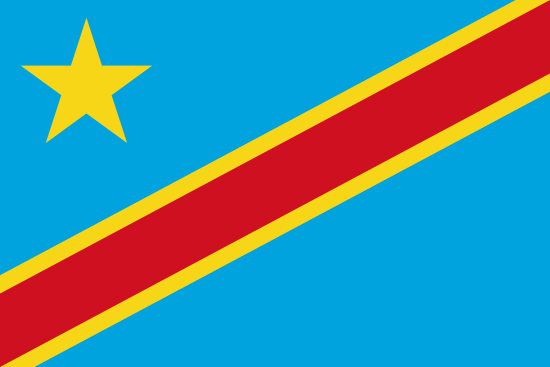
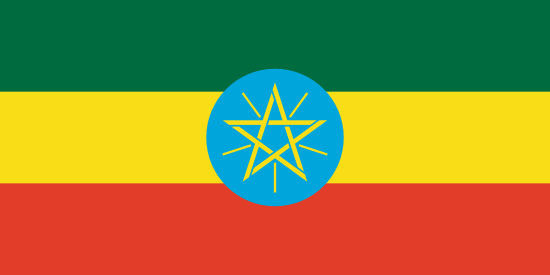
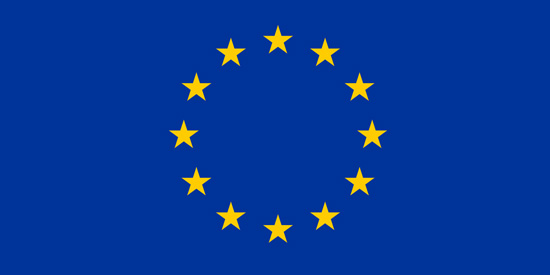
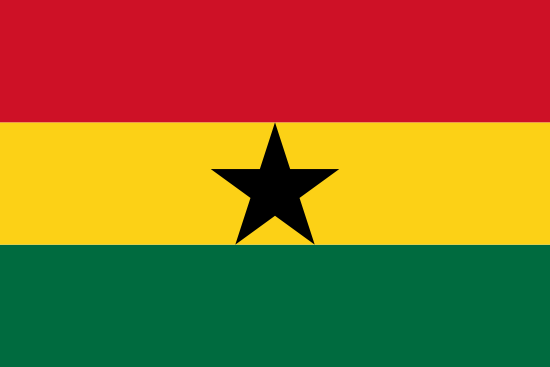

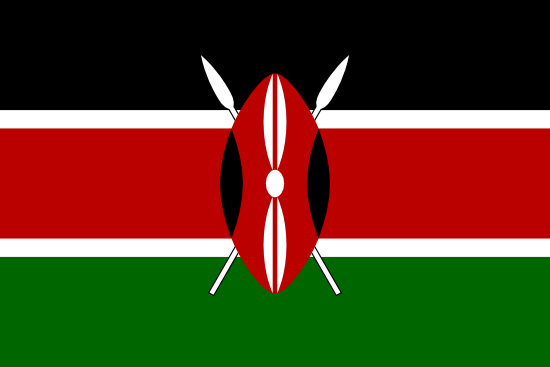
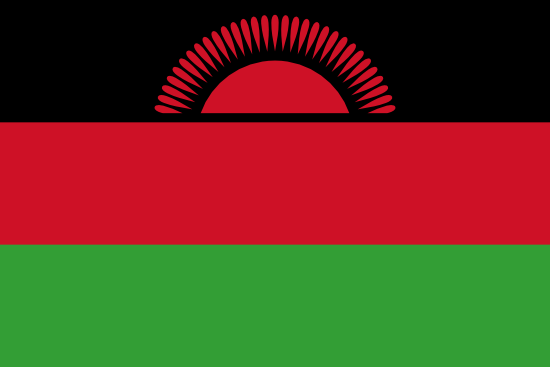
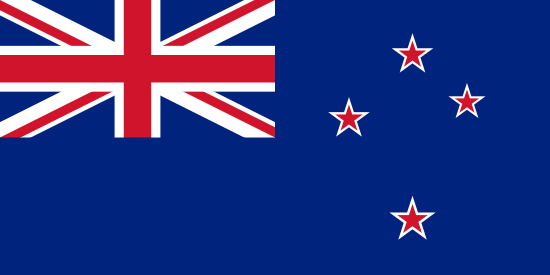
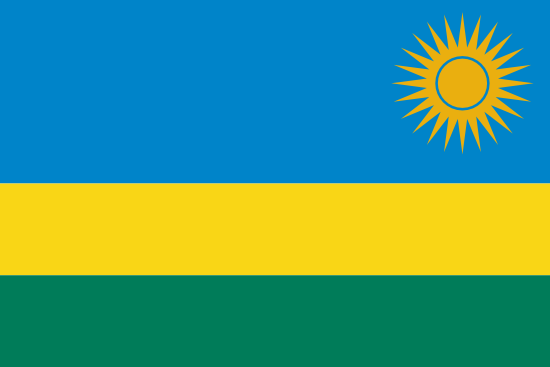
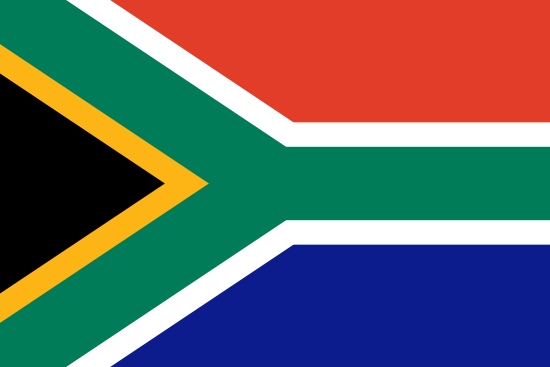
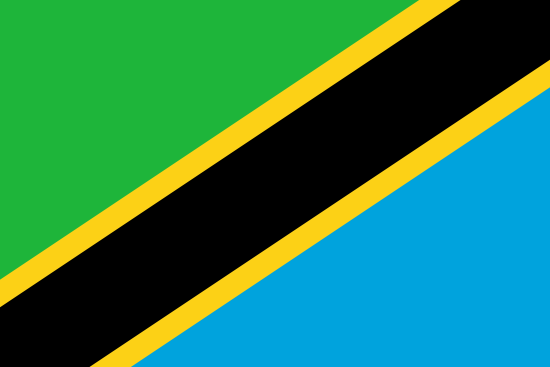
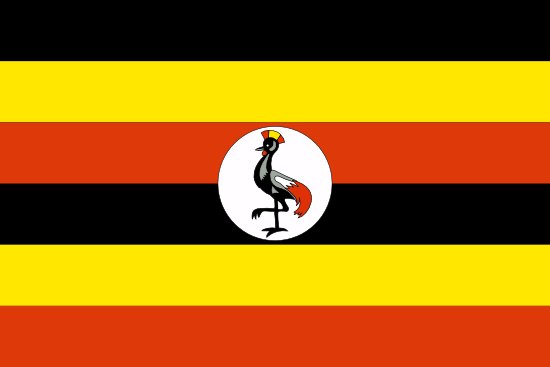
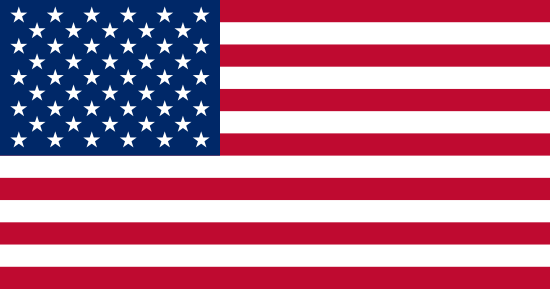
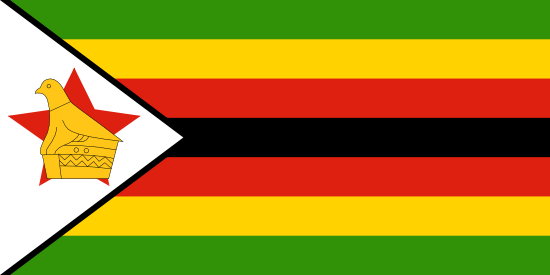

 became a Christian, and I realised that what I have been doing is wrong” (100). The incredulous policeman listened to Stephen’s story and tried to plumb him for information on his gang. Stephen confessed to everything he had done, but sought not to betray his old friends. Finally, the policeman said, “Well, Stephen, if your Jesus has forgiven you, we forgive you also. There is nothing to be gained from keeping you here. You are free to go.” Another policeman held out his hand and said, “Here is some money – go and buy yourself a Bible” (103).
became a Christian, and I realised that what I have been doing is wrong” (100). The incredulous policeman listened to Stephen’s story and tried to plumb him for information on his gang. Stephen confessed to everything he had done, but sought not to betray his old friends. Finally, the policeman said, “Well, Stephen, if your Jesus has forgiven you, we forgive you also. There is nothing to be gained from keeping you here. You are free to go.” Another policeman held out his hand and said, “Here is some money – go and buy yourself a Bible” (103). Stephen spent a number of years studying – learning to read and write, learning English, learning about the Bible and even learning about eating properly with a knife and fork! By the mid-1960s the Dorothea Mission welcomed him aboard as one of their missionaries and he began to go out preaching in the ensuing years on missions throughout Zimbabwe and in Mozambique, Malawi, Zambia, Botswana and South Africa. This was a time of major social and political upheaval in most African countries, as they gained independence from colonial powers or, in the case of Zimbabwe, continued to resist the oppression of the ruling white government.
Stephen spent a number of years studying – learning to read and write, learning English, learning about the Bible and even learning about eating properly with a knife and fork! By the mid-1960s the Dorothea Mission welcomed him aboard as one of their missionaries and he began to go out preaching in the ensuing years on missions throughout Zimbabwe and in Mozambique, Malawi, Zambia, Botswana and South Africa. This was a time of major social and political upheaval in most African countries, as they gained independence from colonial powers or, in the case of Zimbabwe, continued to resist the oppression of the ruling white government.

